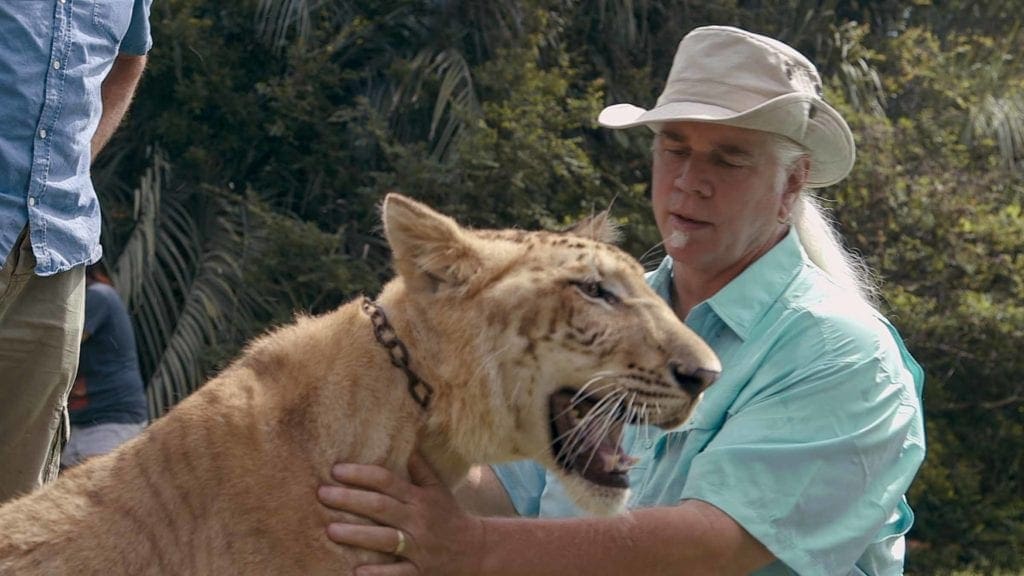In the annals of modern reality television, few documentaries have captured the public’s imagination quite like Netflix’s “Tiger King.” This wildly popular series takes viewers deep into the bizarre, tumultuous world of big cat facilities, showcasing the lives of eccentric characters who exploit and commodify these majestic creatures. However, as millions binge-watched this phenomenon, an insidious question lingered on the fringes: does “Tiger King,” in its sensationalized storytelling, inadvertently glorify animal cruelty?
To tackle this contentious issue, it is imperative to examine the very fabric of “Tiger King” itself. The documentary centers around Joe Exotic, a self-proclaimed “Tiger King” who owns a sprawling exotic animal park in Oklahoma. From the outset, promises of intrigue and scandal draw the audience in — raucous feuds, outrageous characters, and shocking storylines abound. However, beneath the surface lies a disquieting reality: the treatment of animals is often relegated to the periphery, barely skimming the attention they deserve.
The series does not shy away from illustrating the precarious existence of these big cats. Yet, as viewers are captivated by the tempestuous personalities and tangled plots, the consequences of their captivity often fade into obscurity. This is where the ethical complexities of the show emerge. The camera captures the wild beauty of the tigers and lions, but it simultaneously glosses over the grim realities of their confinement. The juxtaposition between their majestic appearance and the stark limitations of their captivity raises profound inquiries into the responsibilities of those who present such narratives.
One essential aspect that “Tiger King” does little to interrogate is the gradual desensitization of viewers toward animal suffering. By portraying animal caretakers like Joe Exotic and his contemporaries as larger-than-life characters, the documentary invites an underlying amusement that can obscure the gravity of the situation. While the outrageous antics and the sensationalized drama invite intrigue, they also risk normalizing the commodification of these bewildered animals. As viewers relish the drama, the animals’ silent suffering demands more than passive voyeurism; it cries out for critical examination.
Moreover, the show fuels an insatiable appetite for exotic pet ownership—a phenomenon that is both alarming and catastrophic. The fame of figures like Joe Exotic can inadvertently glamorize the possession of wild animals, fostering the dangerous notion that these creatures can be tamed or even used as status symbols. The potential repercussions of such cultural rhetoric are dire, leading to an increase in illicit trade and a burgeoning population of abandoned exotic pets. This facet underscores the responsibility of media creators to wield their influence with care and intentionality.
Critics of “Tiger King” have rightly pointed out that, although the series does highlight some questionable practices, it fails to offer a holistic perspective on the plight of these animals. Indeed, the exposé format presents a series of shocking vignettes, yet it neglects to provide the deeper context needed to truly understand the systemic issues underlying exotic pet ownership and the broader wildlife trade. By failing to include qualified voices from reputable animal welfare organizations, the documentary misses a critical opportunity to educate audiences and provoke meaningful discourse about animal rights and conservation.
Furthermore, the patrons of the series—those who cheer for the thrill of the unexpected and the absurd—are complicit in a dynamic that can perpetuate the very cruelty it attempts to showcase. Cyber spectatorship in today’s world comes with an ethical responsibility. The challenge lies not only in identifying animal cruelty but also in fostering a proactive stance against it. As one consumes crisis-driven media, the question arises: what actions are being taken beyond mere entertainment? Do we engage with the very real ramifications of wildlife exploitation, or do we resign ourselves to amused detachment?
To catalyze an essential shift in perspective, viewers must critically assess the narratives presented to them. “Tiger King” offers an entry point into larger conversations about animal rights, but it should not be mistaken as a definitive examination of the issues. Instead, it serves as a springboard for advocates and viewers alike to ponder: what constitutes ethical treatment of animals? How do we effectively advocate for reform in an industry rife with exploitation?
In conclusion, “Tiger King” undoubtedly presents viewers with an eye-catching blend of drama and absurdity, yet it simultaneously treads the perilous line of glorifying animal cruelty. As we immerse ourselves in the fantastical world of big cats and their eccentric keepers, we must remain vigilant in our scrutiny of the media that entertains us. Every documentary, every series, carries the weight of responsibility— a mantle that should not be worn lightly. The quest for understanding should not end with the last episode; rather, it must ignite a fervent curiosity to question, challenge, and ultimately champion a more humane world for all animals. In doing so, we may find ourselves at the forefront of a burgeoning movement—one that seeks not only to expose the harsh realities of animal captivity but also to forge a future in which we cherish and protect the living creatures we share our planet with.








